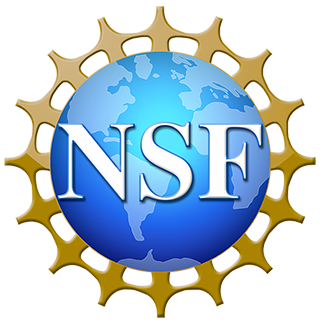Professor Betke receives new NSF Cyberlearning and Future Learning Technologies grant
 Computer Science Professors Margrit Betke (PI) and Stan Sclaroff (Co-PI) were recently awarded a grant from the Cyberlearning and Future Learning Technologies Program at the National Science Foundation. The program aims at advancing how people learn in technology-rich environments. The NSF project will integrate prior work from two NSF-sponsored projects on (i) advanced computer vision and (ii) affect detection in intelligent tutoring systems. The latter work developed instruments to detect student emotion (interest, confusion, frustration and boredom) and showed that when a computer tutor responded to negative student affect, learning performance improved. The current project will expand this focus beyond emotion to attempt to also detect persistence, self-efficacy, and the trait called ‘grit.’ The project will measure the impact of these constructs on student learning and explore whether the grit trait, a persistent tendency towards sustained initiative and interest, can be improved and whether and how it depends on other recently experienced emotions. The technological innovation enabling this research into the genre of broadly affectively aware instruction is Smartutors, a tool that uses advanced computer vision techniques to view a student’s gaze, hand gestures, head, and face to automatically detect their affect. One goal is to reorient students to more productive attitudes once waning attention is recognized.
Computer Science Professors Margrit Betke (PI) and Stan Sclaroff (Co-PI) were recently awarded a grant from the Cyberlearning and Future Learning Technologies Program at the National Science Foundation. The program aims at advancing how people learn in technology-rich environments. The NSF project will integrate prior work from two NSF-sponsored projects on (i) advanced computer vision and (ii) affect detection in intelligent tutoring systems. The latter work developed instruments to detect student emotion (interest, confusion, frustration and boredom) and showed that when a computer tutor responded to negative student affect, learning performance improved. The current project will expand this focus beyond emotion to attempt to also detect persistence, self-efficacy, and the trait called ‘grit.’ The project will measure the impact of these constructs on student learning and explore whether the grit trait, a persistent tendency towards sustained initiative and interest, can be improved and whether and how it depends on other recently experienced emotions. The technological innovation enabling this research into the genre of broadly affectively aware instruction is Smartutors, a tool that uses advanced computer vision techniques to view a student’s gaze, hand gestures, head, and face to automatically detect their affect. One goal is to reorient students to more productive attitudes once waning attention is recognized.
The BU team will work with collaborators at Clark University, in particular, Assistant Professor John Magee, BU PhD ’11, and with colleagues at WPI and UMass Amherst.
For more information please see “INT: Collaborative Research: Detecting, Predicting and Remediating Student Affect and Grit using Computer Vision” 1551572, $614,990 for 4 years, starting 9/1/2016: http://nsf.gov/awardsearch/showAward?AWD_ID=1551572